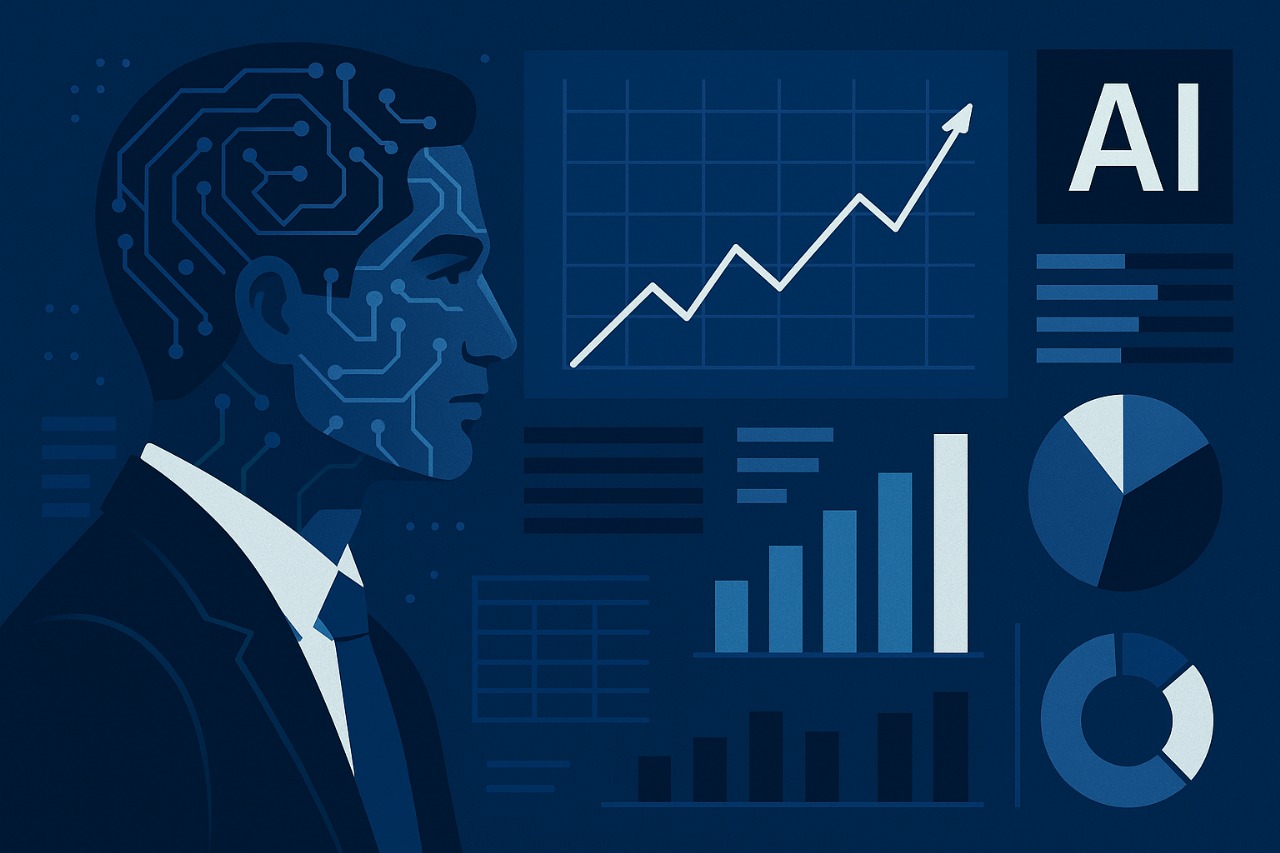For most of my career, I’ve worked where data meets decision, in rooms where the stakes were high, the timelines were short, and the numbers only told half the story. Over the years, I’ve seen analytics evolve from a back-office tool into a front-line force. And now, with the rise of AI in analytics, I believe we’re standing at one of the most consequential turning points in modern leadership.
We used to analyze data to understand what was. Now we’re training machines to tell us what will be. And that shift, from hindsight to foresight, is quietly rewriting how we lead, plan, and even think.
From Reporting to Revelation
When I first led data-driven projects in the early 2000s, analytics was largely reactive. We gathered numbers, produced reports, and hoped to find a signal in the noise. Insights were rare and often came long after they were useful.
Today, artificial intelligence analytics systems can sift through millions of data points in seconds, uncovering patterns that used to take teams of analysts weeks to identify. AI doesn’t just process information, it learns from it, anticipates it, and adjusts on the fly. It’s like watching an apprentice evolve into an advisor. And perhaps just as importantly, it makes the iterative learning cycle so much faster. What before took months to learn, adjust and reprocess now can happen in hours.
But as extraordinary as that sounds, it also introduces a quiet dilemma: when machines start learning what we used to learn the hard way, what happens to our own capacity for wisdom?
Data Without Discernment Is Still Dangerous
I’ve sat in meetings where leaders were paralyzed by dashboards. They had every number they could ask for, yet no clarity on what to do next. The truth is, AI data analysis can only offer knowledge, not understanding, not meaning.
Wisdom still belongs to the human. The model can tell you which product is likely to sell or which message might resonate, but it can’t tell you why it matters, or whether it should.
If leadership is about direction, not just precision, then the real power of analytics isn’t in its algorithms, it’s in our ability to interpret them with judgment, empathy, and purpose.
What I’ve Learned Watching AI Mature
Over the last decade, I’ve watched this transformation unfold across industries, from government policy to global campaigns. A few patterns keep emerging.
- AI reveals our bias more than it removes it.
People like to say that machines are neutral. They’re not. They reflect the data we feed them and the intent behind how we train them. I’ve seen algorithms reinforce inequities they were supposed to fix. It reminds me that technology doesn’t absolve us of moral responsibility, it magnifies it. - The faster we move, the more reflection we lose.
AI delivers instant insights. But insight without reflection becomes noise. We risk confusing motion for progress. Leadership requires time, time to discern what’s right, not just what’s efficient. - Human judgment is the new competitive edge.
As machine learning analytics becomes commoditized, what sets great organizations apart isn’t their data but their discernment. The ones who thrive are those who know when to question the model, when to pause, and when to let intuition weigh in.
The Moral Frontier of Machine Intelligence
Here’s the paradox: AI has given us a clearer view of the world, yet it’s made the world harder to see in human terms. We can now quantify behavior, predict sentiment, and simulate decisions. But leadership, real leadership, happens in the space between numbers.
In a campaign I once advised, an algorithm predicted which message would “win.” It was statistically correct but emotionally tone-deaf. We went a different direction, and that human decision, grounded in empathy, turned out to be the right one. AI could see the pattern, but it couldn’t feel the moment.
That, to me, is the heart of this new era: we need leaders who can combine the precision of data with the perspective of wisdom.
Looking Ahead: What Leadership Must Become
If the past was about mastering information, the future will be about mastering interpretation. The leader of tomorrow won’t just read reports; they’ll curate meaning from an ocean of machine-generated insight.
The best leaders I know already treat AI as a partner, not a prophet. They use it to illuminate blind spots but still trust their instincts. They understand that progress without principle is just acceleration without aim.
I believe we’re entering an age where analytics will be as much about ethics as efficiency. Where the question won’t just be What can we know? but What should we do with what we know?
And that’s where wisdom, that ancient, stubborn, deeply human quality, still holds the final word.
In the end, AI may redefine analytics, but it can’t redefine accountability. It may simulate intelligence, but it can’t simulate integrity. As leaders, we can welcome what it offers, but we must never surrender what it demands, the courage to think, to question, to care.
Because while machines might guide us toward better predictions, only people can guide us toward better decisions.
#AIinAnalytics #ArtificialIntelligence #Leadership #MachineLearning #DataWisdom


